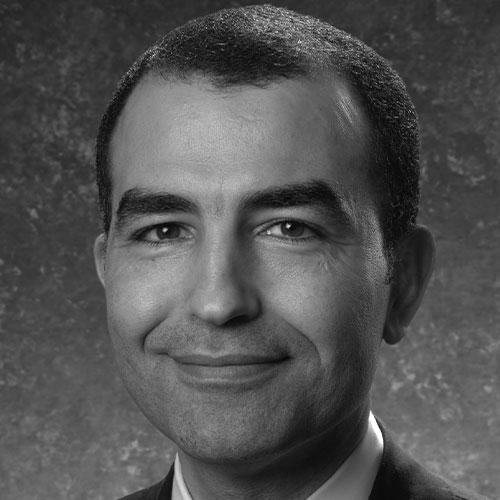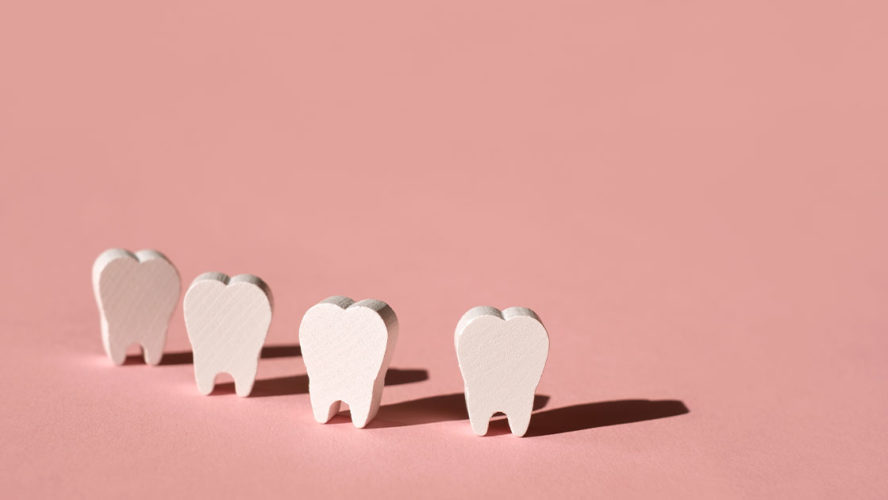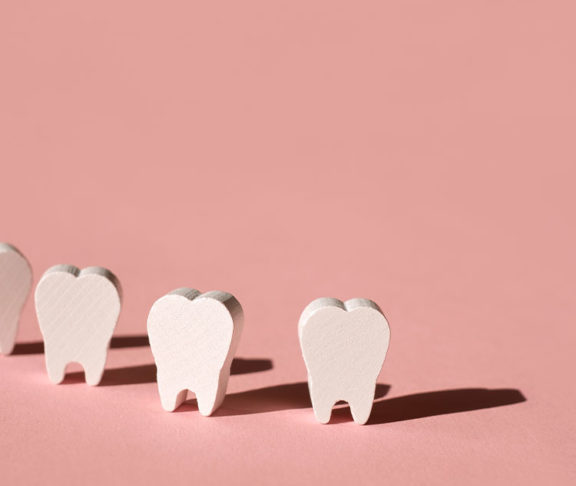We get in-depth answers on child oral health, including when to go to the dentist and how to brush your baby’s teeth during the first years of life.

Amr M. Moursi, D.D.S., Ph.D.
Professor and Chair, Department of Pediatric Dentistry, New York University College of Dentistry
When should parents take their child to their first dental check-up?
Ideally, children should see a dentist just after the eruption of their first baby tooth, or about six months of age, but no later than 12 months of age. That early visit can be the start of a lifetime of good oral health and it helps ensure parents are doing all the right things to maximize the prevention of dental disease, identifies any special needs their child might have, and is an opportunity to ask questions. Every parent marks milestones in their child’s life and we like to think of the first dental visit as a “smilestone” in a lifetime of oral health.
How do children typically react to their first dental visit? What can parents do to make sure it’s a positive experience?
At that early age, it is common for a child to be curious, cry, or be reluctant to separate from her parent. Pediatric dentists often use a technique called a ‘knee-to-knee exam’ that permits the dentist to get a good look in the child’s mouth, allows the parent to see what the dentist is seeing, and doesn’t require the child to be in a dental chair. In most cases, the first exam is a quick one, and the child ends it with a hug from mom or dad!
What should parents typically expect during the first visit?
Parents should expect mostly dialogue with the dentist and a brief look in the child’s mouth. Most first visits are opportunities to make families comfortable with their choice of a dental home, get questions answered and learn more about prevention and their child’s oral health future. Tooth cleaning, x-rays, and other treatment are done when a child’s circumstances suggest a benefit.
How should parents care for their children’s teeth at home?
Birth to 6 months
Prior to the eruption of the first baby tooth, little needs to be done. Some pediatric dentists suggest wiping gums with a damp washcloth during bathing as a part of conditioning a child for brushing that is just a tooth away.
6 – 12 months
Once the first tooth erupts, parents should perform oral hygiene as recommended by the dentist which often includes gentle brushing of teeth present with just a rice kernel-sized dab of fluoride toothpaste, twice a day. This is also a time in life to be aware of what should be avoided, like frequent snacks and drinks containing added or natural sugars. This is also a critical time for discussion of bottle use and breastfeeding, thumb or pacifier habits and preparing for teething and any other developmental concerns.
1-3 years old
During this period, most children get the remainder of their baby teeth, and parents need to continue to brush a child’s teeth with a rice-sized amount of fluoride toothpaste, twice a day. At this age, under parental supervision, children can practice play-brushing with a wet toothbrush following parental brushing.
What’s the most challenging part of teaching kids to care for their teeth?
The challenges in teaching children to care for their teeth are much the same as with other tasks children need to master like toilet training and eating vegetables. For example, the newness of brushing with fluoride toothpaste requires consistent exposure and repetition. Maintaining focus requires supervision and distraction from competing stimulation. Successfully learning the skill and maintaining it over time are helped by rewards and praise.
What are some common strategies parents have used to incentivize kids to brush their teeth?
A sports analogy applies here. Parents transition from player to coach to fan. Research shows that most children have neither the dexterity nor the patience to be good brushers until well into elementary school. Parents need to be engaged in brushing until a child can assume this life task, so as a ‘player’, parents brush teeth and may let a child play at it well into pre-school age. As a ‘coach,’ when a child has the skills and concentration to brush well, a parent oversees efficacy, motivates, rewards, and demonstrates as needed. Finally, as a child matures and shows proficiency, a parent-fan watches, reinforces, and praises a child’s efforts.
What oral health routine should kids be following after age 5?
The most effective oral health routine is one tied to the chronology or timing of tooth decay and its prevention. Research has shown time to be key in prevention, early reversal of tooth decay, and optimal treatment if needed. Translating timing to a routine for kids means first, establishing a dental home by one year of age. For oral hygiene, it means brushing twice a day with fluoride toothpaste, preferably in the morning after breakfast and right before bed. For diet, a routine involves controlling the frequency and timing of exposure to added and natural sugars – the fewer the better in the course of a day, and best timed with meals.
What are the signs of serious oral health issues in children?
Pain in the mouth demands immediate attention by a dentist. The pain can be brought on by hard or chewy foods, hot or cold foods, or most concerning just spontaneously. Warning signs before pain’s red flag are bad breath, dark spots on teeth, and for very young children, reluctance to eat, or putting fingers in the mouth repeatedly. Gums that bleed when teeth are brushed should prompt a call to the child’s dentist and could be a sign of significant dental or other health problems.
With children back in school after the summer, there’s a risk of injury from sports or school activities. How should parents handle any dental injuries?
Dental injury prevention and first aid should begin with a plan crafted at a child’s first dental visit. Parents might not think of it, but daycare or Head Start means entrusting a child’s oral health and safety to others, so an established dental home, assurance of preventive measures and first aid in a facility, and a communications plan among parents, dental home and the facility, are essential. Organized school sports add another level of complexity and risk, and parents should be familiar with school policies and procedures as well as the safety standards for their child’s activities which might include mouth guards.
Nutrition is a large part of oral health – what should parents try to include in school lunches – what should they try to avoid?
Sugar and sugar-sweetened beverages are the usual culprits affecting oral health and should be avoided or minimized. Processed foods are more likely to have hidden sugars, so parents are encouraged to read labels on things like energy bars and drinks. Oral and general health are tied together and both benefit from a healthful diet that follows guidelines for age, functional energy demands, growth, and development.

